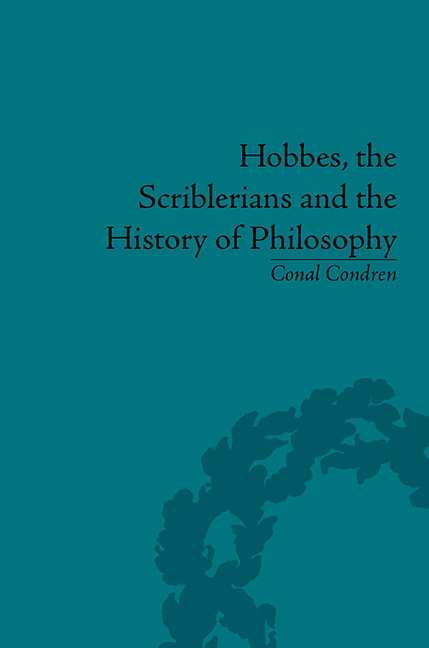Book contents
- Frontmatter
- CONTENTS
- Dedication
- Preface
- Epigraph
- Introduction
- Part I
- Part II
- 3 The Seriousness of the Absurd: The Scriblerian Philosophic Persona
- 4 Identity, Materiality and the Language of Philosophical Absurdity
- 5 Hobbes and the Scriblerians
- Afterword: The History of Early Modern Philosophy: Method, Speech Act and Persona
- Notes
- Works Cited
- Index
3 - The Seriousness of the Absurd: The Scriblerian Philosophic Persona
from Part II
- Frontmatter
- CONTENTS
- Dedication
- Preface
- Epigraph
- Introduction
- Part I
- Part II
- 3 The Seriousness of the Absurd: The Scriblerian Philosophic Persona
- 4 Identity, Materiality and the Language of Philosophical Absurdity
- 5 Hobbes and the Scriblerians
- Afterword: The History of Early Modern Philosophy: Method, Speech Act and Persona
- Notes
- Works Cited
- Index
Summary
Martinus and the Scriblerian Corpus
We first meet Martinus Scriblerus lurking around St James, London, having fled from Spain and a jealous husband. He had been spying on the Spaniard's wife while she bathed, trying to verify the presence of a strange mark on the inside of her thigh; shaped like a pomegranate, it was rumoured to blossom and ripen in due season. The husband had surprised the philosopher in observational mode. The advancement of natural philosophy had its perils. Now we see Martinus in the shadows, desperate for an audience with Queen Anne, but alas shortly to be hurried on again by her unappreciative ministry with all the delicacy of nightclub bouncers. He stands tall and long-faced, black browed, olive skinned with hollow, piercing eyes and aquiline nose. His unkempt beard is flecked with grey, his whole countenance melancholic. He is, after all, a philosopher. Although English, the travel-worn Martinus looks alien, like a decayed Spanish gentleman, a Jesuit perhaps, or a rabbi: an exile in his own land. With straight black wig, long sword and cloak to the ground, he waits, silent as Pythagoras, motionless as Pyrrho, austere as Zeno. But for wig and sword, he seems to hang, figuratively speaking, in the Prado Museum of Madrid, framed as Diego Velazquez's portrait of Menippus. Yet beneath his disconcertingly ‘macerated form’ lies a mind brimming with science, zealous for human betterment, and so proudly independent that he accepts no charity, so abstemious he often goes without food or drink. It is only because a manuscript drops from under his cloak one dinner-time as he walks his lonely way along the Mall that an account of his Extraordinary Life, Works and Discoveries can be related.
This Menippean magus is an outcome of a continuity of intellectual satire noticeable from the Restoration, drawing on classical models and with striking antecedents in the Erasmus circle's use of the broadly Lucianic. Charles Kerby-Miller has emphasized the importance for the Scriblerians of Butler's popular poem Hudibras, hypothesizing that they may also have known some of his ‘characters’ in manuscript form, the bulk not being published until 1759.
- Type
- Chapter
- Information
- Hobbes, the Scriblerians and the History of Philosophy , pp. 77 - 102Publisher: Pickering & ChattoFirst published in: 2014



